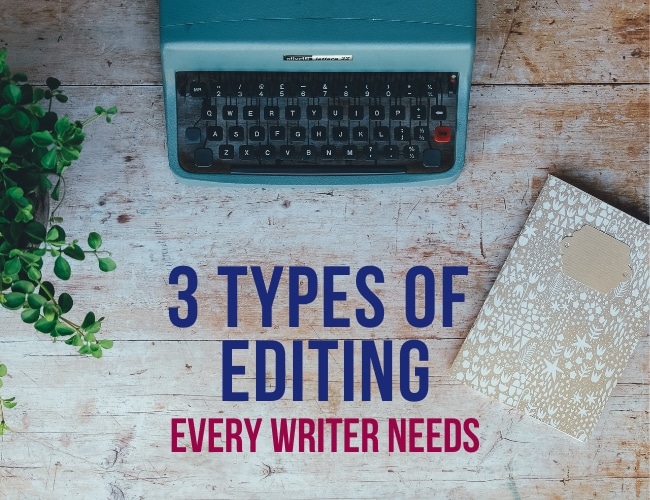A few months ago, I posted an article about avoiding clichés here on The Write Practice. The (bland) title I proposed was “How to Avoid Clichés.” The published title read: “How to Avoid Clichés (Like the Plague).” I grinned when I read it and said another thank you to a quiet hero of the publishing world: our editor.

She amped up the title with a clever twist that sounded just like me with my penchant for parentheses. Editors are invisible heroes in the publishing world, and knowing what they do can help you through every stage of your journey.
What the Best Editors Do
Renowned editor Robert Gottlieb (who edited for an astonishing list of clients, including everyone from Toni Morrison to Joseph Heller) once derided what he called the “glorification” of editors, stating, “The editor’s relationship to a book should be an invisible one.” (Paris Review, Issue 132, Fall 1994)
He believed the reader experience didn’t need to be interrupted by knowing the specifics about what an editor had suggested in any given work.
Gottlieb defines the role of an editor as a quiet ally of the author and ultimately of story itself. Editors are typically exceptional readers, and their vast experience can help you view your writing through a much broader lens.
Editors aren’t out to tell you if something is good. Instead, they work from questions like, “Is this clear? Does it reflect the author’s intention, voice, and genre?”
In short, an editor is an early, invested reader who wants the story to work and satisfy the audience.
3 Types of Editing (Or, What Does an Editor Actually Do?)
You might be surprised to learn all the different types of editing that are available, and how services can vary by the form and audience. For fiction, you’ll likely see services offered on at least three levels: developmental editing, copy editing, and proofreading.
The descriptions below are general guidelines of these three different editing types. Make sure you check specifically with any editor you hire for their breakdown of what is included with each form of editing.
1. Developmental Editing
Developmental editing (also known as substantive editing and structural editing) focuses on big-picture issues, such as story arcs, plot issues, character development, and scene level problems. This type of content editing might involve a manuscript assessment (sometimes called a manuscript critique, manuscript appraisal, or manuscript evaluation), or ongoing book coaching/developmental editing.
Structural editing usually comes early in the editing process, after the first or second draft, and includes detailed feedback about the entire manuscript.
When I had a developmental edit done on a book a couple years ago, the editor helped me identify and fix plot holes, weak scenes, and unconvincing character motivation.
The first time you have a developmental edit done, it can be a little overwhelming. So many notes!
If you find yourself in despair, remember that a developmental edit is a learning process. Read the notes. See the perspective the developmental editor is offering with their editorial assessment. Address one issue at a time and repeat until you have the clearest, strongest draft you can produce.
2. Copy Editing
Copy editing comes later in the writing process, after you've gone through structural editing.
Copy editors will help you refine your language. They make your sentences clear and your paragraphs shine. This type of editing is done at the sentence level, and helps catch minor errors such as spelling mistakes, grammar mistakes, and punctuation errors.
Copy editors want to make your voice as consistent as possible in every line of the manuscript. Some edits will be quick grammar fixes or tweaks to sentence structure, while others might require some choices about the voice and style you are presenting. Your copy editor may create a style sheet or style guide to ensure your writing style remains consistent in your finished manuscript.
3. Proofreading
Proofreaders will help you polish that final draft and free it of any pesky typos. This is the very last step in the editing process, and you can’t do it alone. Proofreading ensures your finished manuscript is the best it can possibly be.
The good news is that typos are quick to fix once you find them. If you can find them. (How do they always manage to sneak past my beady English teacher eyes?)
Is Editing Expensive?
With editing, like most things in life, you get what you pay for. The best professional editors are well-trained, well-read, and well-reputed.
Thoroughly vet any editor before you hire them. Ask to see references or samples. Many will do a short sample edit to see if they are a good fit for you and your work.
If you plan to indie publish, be professional and hire a good editor to make your work the best it can be. If you plan to query agents to go the traditional route, an editor can help you keep your manuscript out of the slush pile when you submit.
A word of warning: Don’t ask editors to work for free. (Did you ask your dentist to do your dental work for free? No, you didn’t. Or if you did, I hope they said no.)
If you cannot afford an editor, join a critique group and be a great writing group member. I’ve heard of writers who barter their professional experience with web or graphic design for editing. Find a way to scrimp, save, read, practice, and swap to get the editing you need.
But What if I’m Not Ready for an Editor Yet?
So many writers agonize over every word in their early drafts. Of course you want to make it the best you can, but no one, even someone with years in the business, writes a publishable first draft.
If you are in the drafting stage, take comfort in knowing you can revise once you have a draft down. You will have numerous opportunities to revise and edit, and your editing process will hopefully include professional editors who will make your voice shine.
When you think you are just about ready to send it to an editor, make sure you check out Pamela Hodges’s great step-by-step self-editing checklist here.
Then, be sure to check out the editing packages we offer here. We offer manuscript critiques, proofreading, ongoing book coaching, and more to get your book ready to share with the world. Check them all out here.
Editing is an essential part of every writer’s process, and it’s freeing to know you don’t have to go it alone. Here’s to all the invisible editing heroes who’ve helped bring all our favorite books to life!
Meet Your Next Editor
Get the right editing for you and your book. Learn about the editing packages we offer and meet your next editor here.
Have you ever worked with an editor? What was that experience like? Let us know in the comments.
PRACTICE
Today, let's practice being editors ourselves. Find a piece of writing you've already written: maybe an excerpt from your work in progress, or a practice you've shared on another article on The Write Practice.
Take fifteen minutes to read and edit your piece. First, think like a developmental editor and ask yourself whether the story makes sense. Next, think like a copy editor and look for ways to strengthen each sentence. Finally, put on your proofreading hat and look for any typos.
Once you've edited your piece, share it in the comments below. You're not done yet! Read at least three other writers' stories. What editorial suggestions do you have for them?
Sue Weems is a writer, teacher, and traveler with an advanced degree in (mostly fictional) revenge. When she’s not rationalizing her love for parentheses (and dramatic asides), she follows a sailor around the globe with their four children, two dogs, and an impossibly tall stack of books to read. You can read more of her writing tips on her website.

I wish people would stop saying “proofreading” when they mean the “line edit.” Especially in this day of self-publishing. Too many author-publishers don’t realize there’s another level of editing after they finish editing the manuscript.